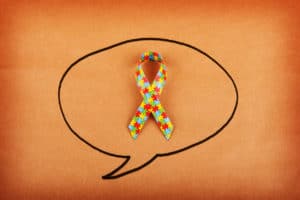In a mental health environment, social workers exist to help patients and families. Mental health social workers can connect people with the right resources, counsel crisis patients, and conduct psychological assessments. Today, they are one of the country’s largest providers of mental health and psychiatric services. Role of a Social Worker in a Mental Health Facility Mental health social workers play a pivotal role in a mental health facility. Their job is to support patients and their families. In addition,… Continue Reading
The Surprising Benefits of Electroconvulsive Therapy
It is time for the misinformation about Electroconvulsive Therapy to stop hindering the successful treatment of debilitating disorders such as severe depression and schizophrenia. The benefits of ECT often outweigh the risks, and the procedure can now be conducted as a safe and comfortable outpatient treatment. The Origins of ECT In 1934, at the University of Budapest, neurologist Ladislas von Meduna observed that after schizophrenic patients suffered seizures, symptoms, including hallucinations, delusions, and rambling speech, were reduced or completely gone. From this observation,… Continue Reading
What’s the Difference Between Inpatient vs. Outpatient Mental Health Services?
If you need help with psychiatric, emotional, or substance abuse problems, you may need to learn the difference between inpatient vs. outpatient mental health care. While some programs and therapies are the same, the intensity is different. Through the proper care, you can gain control of your life again. What’s the Difference Between Inpatient and Outpatient Mental Health Care? While each of these programs offers several exceptional benefits, the main difference between inpatient vs. outpatient mental health programs is their… Continue Reading
PTSD in Healthcare Professionals
Many people think about soldiers and assault victims when they hear the term post-traumatic stress disorder (PTSD). In reality, PTSD is a problem for a wide variety of people. And because of the difficult, traumatic experiences healthcare workers face, PTSD in healthcare professionals is an extremely common problem. Signs of PTSD in Healthcare Workers If people don’t recognize the signs of PTSD in healthcare professionals, the individual may never get the treatment and support they need. They may suffer from… Continue Reading
The Behavioral Side of Autism and Why It’s Different
If you or a loved one has been diagnosed with autism, you might understandably have questions about this condition and any accompanying challenges with mental health. What is Autism? Autism is a condition that affects the way people communicate and experience life. It is a “spectrum condition,” meaning that no two people with autism will be the same. Some may need a little more time to process or understand something that is happening, whereas others with autism may need full-time… Continue Reading
The Benefits & Successes of Mental Health Outpatient Services at San Antonio Behavioral Healthcare Hospital
People with mental health challenges can sometimes feel alone in their struggles. By taking part in an outpatient program at San Antonio Behavioral Healthcare Hospital, patients can have ready access to the support they need while realizing they are not the only ones facing these types of challenges. Our outpatient programs are also designed to help people develop their social skills, which in turn may help them feel less isolated and depressed. At San Antonio Behavioral Healthcare Hospital, our outpatient… Continue Reading
10 Signs of Bipolar Disorder and How to Get Help
Bipolar disorder is a mental health condition characterized by significant mood swings, including emotional highs and lows. Most people with this condition, also known as manic depression, are usually diagnosed in their twenties as symptoms start appearing. Dealing with the signs of bipolar disorder can be overwhelming, and it is important to get help as soon as possible. It can be difficult to persuade someone with this disorder to get help due to experiencing the highs and lows only a… Continue Reading
Schizophrenia vs Bipolar Disorder: How to Get the Support You Need
Schizophrenia and bipolar disorder are two chronic mental health conditions and can often be confused with each other. It is important to understand they have different diagnoses, and treatment is unique for each one, even with their similarities. There are some symptoms that may cause confusion, so it’s vital to understand the difference between the two. Schizophrenia causes more severe symptoms than bipolar disorder, and one of the first symptoms is social isolation with noticeable hallucinations or delusions. No one… Continue Reading
Connection Between Mental Health Disorders and Chemical Dependency
When someone receives a dual diagnosis, it usually means they will require treatment for a mental health condition and for substance abuse. These disorders are frequently associated with each other and increase the damaging effects on a person’s well-being. Another name for this connection is a co-occurring disorder that combines the effects of having two major diseases. About 50% of people who suffer from mental health disorders are also affected by substance abuse. While these two are closely linked, drugs… Continue Reading
Chemical Dependency Vs. Addiction: What’s the Difference?
When comparing chemical dependency and addiction, many people may believe they are the same thing. While they do share some similarities in causes and symptoms, there are some contrasts between these two mental health conditions. Learn about the differences between chemical dependency and addiction so you can help yourself or a loved one overcome either of these challenges. What is Chemical Dependency? Among the biggest mental health conditions in the United States, chemical dependency is defined by people who physically… Continue Reading















